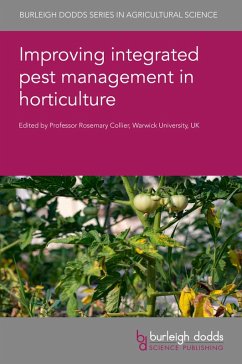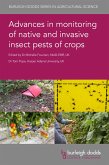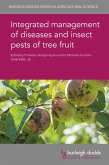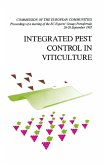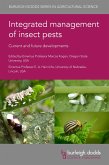"This new book is both timely and important for the continued development, improvement and uptake of IPM for horticultural crops...With increasing global pressure to produce sustainable food and to achieve pest suppression using ecologically sensitive methods, this book provides not only the latest research but also practical solutions for key vegetable pests, via relevant case studies. I recommend this book to students and practitioners of IPM in horticulture."
Emeritus Prof. Nick Birch, formerly James Hutton Institute, UK
Pests and diseases remain a significant threat to crop yields worldwide. With concerns about the environmental impact of synthetic pesticides, there remains a need to develop more environmentally-friendly biological methods of control that can be combined synergistically within integrated pest management (IPM) strategies.
Improving integrated pest management in horticulture provides a comprehensive review of the recent developments in integrated pest management for horticultural crops. The collection builds on the wealth of research on insect and disease control in horticulture using IPM strategies in areas such as biological control and decision support systems to target techniques more effectively. The book also includes valuable case studies based on practical experience of IPM.
Edited by Professor Rosemary Collier, Warwick University, UK, Improving integrated pest management in horticulture will be a standard reference for researchers in IPM in horticultural science departments, entomologists, manufacturers/suppliers of pesticides and crop pest management products, as well as government agencies monitoring and regulating pest management in agriculture.
Dr Rosemary Collier is a Professor in the School of Life Sciences and Research Director of the Crop Centre at the University of Warwick, UK. A leading authority in integrated pest management (IPM) in horticulture, Professor Collier is Coordinator of the IPM Working Group in the European Vegetable Research Institutes Network (EUVRIN) and has coordinated a number of EU IPM research projects such as FlyIPM. Professor Collier has been awarded the Royal Horticultural Society Veitch Memorial Medal for her outstanding contribution to horticultural science.
Emeritus Prof. Nick Birch, formerly James Hutton Institute, UK
Pests and diseases remain a significant threat to crop yields worldwide. With concerns about the environmental impact of synthetic pesticides, there remains a need to develop more environmentally-friendly biological methods of control that can be combined synergistically within integrated pest management (IPM) strategies.
Improving integrated pest management in horticulture provides a comprehensive review of the recent developments in integrated pest management for horticultural crops. The collection builds on the wealth of research on insect and disease control in horticulture using IPM strategies in areas such as biological control and decision support systems to target techniques more effectively. The book also includes valuable case studies based on practical experience of IPM.
Edited by Professor Rosemary Collier, Warwick University, UK, Improving integrated pest management in horticulture will be a standard reference for researchers in IPM in horticultural science departments, entomologists, manufacturers/suppliers of pesticides and crop pest management products, as well as government agencies monitoring and regulating pest management in agriculture.
Dr Rosemary Collier is a Professor in the School of Life Sciences and Research Director of the Crop Centre at the University of Warwick, UK. A leading authority in integrated pest management (IPM) in horticulture, Professor Collier is Coordinator of the IPM Working Group in the European Vegetable Research Institutes Network (EUVRIN) and has coordinated a number of EU IPM research projects such as FlyIPM. Professor Collier has been awarded the Royal Horticultural Society Veitch Memorial Medal for her outstanding contribution to horticultural science.
Dieser Download kann aus rechtlichen Gründen nur mit Rechnungsadresse in A, D ausgeliefert werden.

